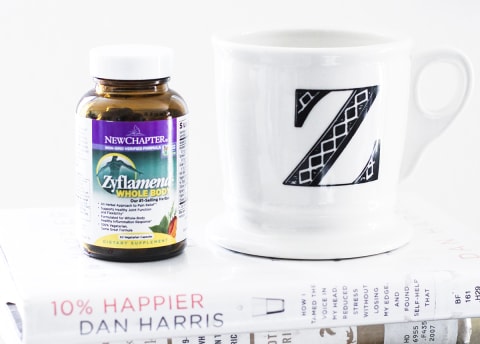Advertisement
Did You Know There Are Two Kinds Of Inflammation? Here’s How To Tell Them Apart

Inflammation, on some level, happens to everyone: We all know what it’s like to feel sore after a hard workout, or get a stuffy nose when we have a cold. The redness and warmth you feel on your skin when you accidentally bump your head or smack your finger against something? That’s inflammation, but it’s a totally normal and healthy process.
These instances are examples of acute inflammation, and it happens when your brain signals the release of inflammatory mediators to a specific area on your body that needs relief, damage repair, or protection from viruses and bacteria. In other words, inflammation has one job: to help your body heal itself.
When inflammation becomes the bad guy

But here’s the irony—and it’s a big one: Inflammation that lingers on for too long or gets out of balance is not healthy. While sometimes you can feel lingering inflammation, it can also be sneaky and even undetectable, hence why it’s commonly referred to as “silent inflammation.” And it should be on everyone’s radar: Health professionals link unchecked inflammation with many common diseases like obesity, diabetes1, heart disease, and even depression.
How to spot the signs of “silent” inflammation
While it could take years or decades for inflammation to progress into long-term health problems, silent inflammation may also manifest itself in some not so-fun ways. Think constant low energy, skin that’s always itchy or prone to rashes, digestive issues, allergies, and stubborn belly fat.
Experiencing any of these may be a clue that there might be some silent inflammation going on beneath the surface. To know for sure though, talk with your doctor, who may want to take a closer look at certain biomarkers for inflammation. For example, a C-reactive protein test measures a protein that’s elevated if inflammation is present. A fasting blood glucose test and a Hemoglobin A1C test measures blood sugar, which tends to be high if you’re inflamed. Together, you can come up with a plan of action that best suits your health needs.
What you can do right now
Thankfully, there are a few simple lifestyle tips that can help balance inflammation. Read on below!
1. Load up on inflammation-controlling nutrients.
By now, you’ve heard the buzz about anti-inflammatory diets. Experts agree that filling up on real, non-processed foods is one of the healthiest things you can do to calm inflammation. Specifically, this means lots of green leafy veggies, fruits like blueberries and oranges, and foods rich in omega-3 fatty acids like nuts and fish. Cook with anti-inflammatory herbs and spices2 like turmeric and ginger. Nutritionists also recommend drinking green tea for its anti-inflammatory properties. And if you like bone broth, good news: It’s great for reducing inflammation.

You can also add healthy inflammation-balancing power to your diet with a supplement, which can help ensure you get all the nutrients you need. Look for a high-quality supplement that’s been clinically tested and is free of fillers and artificial colors or flavors. One of the most advanced inflammation-balancing formulas on the market right now is Zyflamend Whole Body, a multi-herbal made to work on inflammation where it can start, including silent inflammation you can't feel.* Zyflamend’s patented 10-herb blend—which includes turmeric, ginger, rosemary, and green tea—helps to balance inflammation, protect cell health, and prevent future damage.*† Again, chat with your doc before starting any new supplement routine.
2. Move that body.
There’s a reason why our fitness trackers want us to hit 10,000 steps a day. Though strenuous exercise can initially cause acute inflammation (hello, muscle soreness), moving your body with regular exercise has a powerful effect on lowering inflammation in the long run.
Studies have shown that even just a 20-minute session of moderate exercise is enough to stimulate our immune system3 to produce an anti-inflammatory response in the body’s cells. Another study showed that people who did 2.5 hours of moderate exercise each week (the standard guideline for cardio health) lowered their markers of inflammation below what’s normally seen with aging. So keep that fitness tracker on and walk, run, bike, dance, chase your kids! Find movement you actually enjoy and stick to it daily whenever you can.
3. Don’t forget to detoxify and de-stress.
We can’t do much about the toxins and pollution we get from being outside, but inflammation can be caused by some chemicals that we encounter in our environment. Once absorbed, our immune system can react by creating inflammation, so look for a few ways to detoxify your environment: Eating organic and focusing on a clean lifestyle, which minimizes your use and exposure to unnecessary chemicals.
High levels of stress is another cause4 of chronic inflammation. It’s a good reminder to manage our stress on a regular basis by prioritizing self-care: Get enough restful sleep and a bit of sunshine, enjoy a massage (seriously!), and don’t underestimate the power of a quick meditation. A review of studies5 has shown that strengthening the mind-body connection plays a role in reducing markers of inflammation. All these things can help trigger pro-inflammatory changes, so go on and om.
